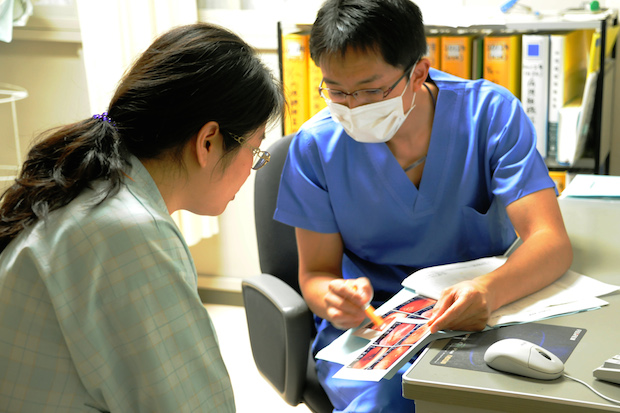No screening test for cancer is 100 per cent accurate. While some individuals might benefit from having an early cancer spotted, many more will have abnormalities detected that, although suggestive of a cancer, turn out after further investigations to be completely innocuous. Such false-positives have led to concerns that cancer screening can result in psychological and physical harm to patients.
Nowadays, although routine NHS screening is available for certain cancers such as breast, cervix and bowel, the worry about false positives has been a key argument limiting access to CA125 testing for ovarian cancer and CA19-9 testing for pancreatic cancer.
Lung cancer screening is now advocated for certain groups of patients in the USA. However, the debate in the UK about embarking on such screening has not only focused on the risk of false positives but also that low dose CT scanning will detect other abnormalities — known as incidental findings — including cysts in the kidney or arterial swellings (aneurysms).
Traditionally many doctors have adopted a somewhat paternalistic approach to cancer screening. Back in the early 1970s the terms ‘Ulysses syndrome’ was even coined for those individuals traumatised by their journey around the health care system following a false positive result. Unfortunately little research has actually focused on the real — as opposed to perceived — impacts on patients of false positive and incidental findings in the context of a well organised cancer screening programme. Moreover it is important to appreciate that there is also sound evidence that CA125, Ca19-9 and low dose CT scanning can, in some circumstances, detect cancers at an earlier — and potentially curable — stage.
In a study published this week in the journal Cancer, Ilana Gareen and her colleagues assessed patients’ wellbeing after lung cancer screening. Interestingly they found that individuals receiving a false-positive or incidental finding screen result experienced no significant increase in anxiety or reduction in quality of life compared to those given a negative result at the outset. Perhaps the time is ripe to look afresh — and from the patient`s perspective — at the screening options available for lung, ovarian and pancreatic cancer?






Comments